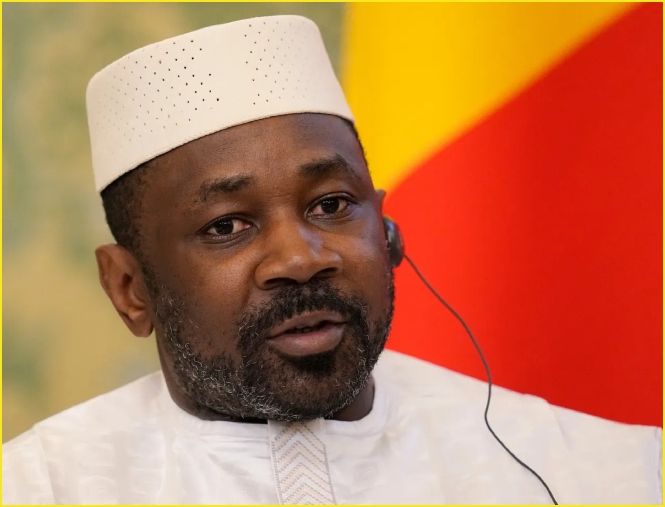In a bold diplomatic countermeasure, the Republic of Mali has announced that American citizens seeking tourist or business visas will now be required to post a bond of up to $10,000, mirroring a similar U.S. policy introduced by the Trump administration targeting Malian nationals.
The announcement, confirmed by Mali’s Ministry of Foreign Affairs on Sunday, October 11, marks a significant escalation in the country’s evolving relationship with Washington—a relationship already strained by shifting geopolitical allegiances and lingering resentment over what Malian officials call “unilateral and discriminatory” U.S. immigration policies.

A Diplomatic Reversal
The Malian government said its new measure represents “an identical visa program” to the United States’ bond system, which requires applicants from several nations—primarily in Africa and Asia—to post refundable deposits ranging from $5,000 to $15,000 as a condition for obtaining temporary U.S. visas. The Trump-era policy, still active in some cases through reciprocal agreements, was originally framed as a deterrent against visa overstays and a safeguard for national security.
According to BBC Africa, Mali’s Foreign Ministry described its decision as a necessary act of “diplomatic reciprocity,” invoking the long-standing international principle of equality of treatment among sovereign states.
“Washington acted first,” a senior Malian diplomat reportedly said. “We are simply doing what any self-respecting nation would—treating others as they treat us.”
Impact on U.S. Travelers and Businesses
The new bond requirement applies to tourist and business visas, potentially complicating travel for American visitors and companies operating in Mali’s resource-rich sectors. The country remains one of Africa’s largest gold producers and a growing player in the global lithium market—two industries that have recently attracted U.S. investment interest.
Business analysts warn that the new policy could dampen American participation in Mali’s mining and energy projects, particularly as Chinese and Russian firms increase their regional footprint.
“This move sends a clear signal that African nations are no longer accepting one-sided treatment,” said a global affairs observer. “For Mali, this is both a diplomatic statement and a political reassertion of independence.”
A Broader African Pushback
Mali’s policy shift reflects a broader trend across Africa, where nations are pushing back against Western immigration and security restrictions. In June, Chad suspended all visas to U.S. citizens after Washington placed it on a restrictive travel list. Similar sentiments have surfaced in Zambia, Mauritania, and The Gambia, all of which were affected by the U.S. bond system.
Regional analysts argue that Mali’s stance could embolden other African nations to adopt reciprocity-based visa policies, reshaping diplomatic norms that historically favored Western powers.
“This is part of a new African diplomacy—assertive, strategic, and unapologetically reciprocal,” said one political analyst based in Accra. “It’s less about anger and more about dignity.”
Shifting Alliances and Sovereignty
Since President Assimi Goïta came to power in 2021 following a military coup, Mali has pursued a policy of self-determination, expelling French troops and deepening its military and economic cooperation with Russia. The arrival of Moscow-backed Africa Corps personnel has further underscored Bamako’s pivot away from traditional Western partners.
Despite recent attempts at dialogue—including a July visit by U.S. officials to discuss counterterrorism and investment—the trust gap remains wide. Mali’s new visa policy, though largely symbolic, reinforces the message that Bamako intends to conduct foreign policy on its own terms.
Perspective: Reciprocity as the New Currency of Diplomacy
Mali’s move is more than bureaucratic retaliation—it’s a declaration of parity. In a world where immigration policy often reflects power dynamics, the West African nation’s decision rebalances the scales, reminding Washington that diplomatic respect cuts both ways.
The real test will be whether the U.S. responds in kind—or rethinks its approach to immigration reciprocity with nations it still seeks to influence.

